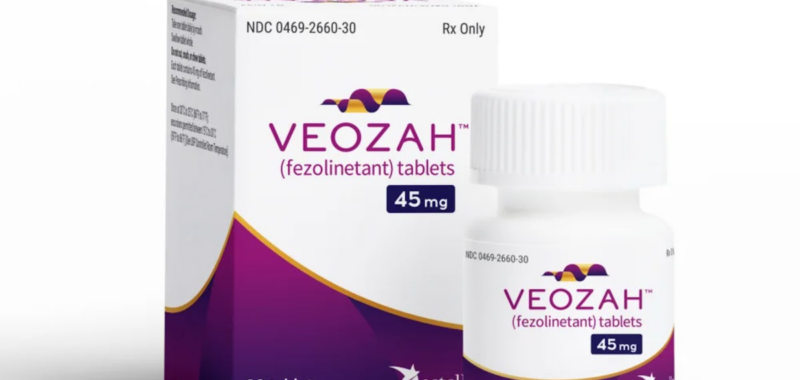The symptoms of menopause can have a significant affect on your life, from mood swings to painful periods to joint pain to weight gain. One of the most notorious issues is hot flashes, which can strike at any time. While the Food & Drug Administration (FDA) approved a new drug to fight this occurrence in May 2023, they’ve now placed a Black Box warning on the label due to a rare risk of serious liver damage.
On Monday, December 16, the FDA issued their most prominent and serious warning, a Boxed Warning, for Veozah (fezolinetant), to highlight the rare or documented risk of liver damage.
What should those who are taking the menopause medication do in response to this news? As always, first and foremost, talk to your doctor about your personalized care. Secondly, the FDA suggests that those on Veozah get regular blood tests to check for signs of liver damage. Specifically, the FDA now recommends testing for two months after starting Veozah, and then at months three, six, and nine of treatment.
In addition the FDA states that people showing evidence of liver damage should stop the medication immediately: “If there are signs and symptoms suggesting liver injury, stopping the medicine could prevent worsening liver injury and potentially return liver function to normal.”
Symptoms of liver damage can include:
- Fatigue
- Nausea
- Vomiting
- Unusual itching
- Light-colored stools
- yellowing of the eyes or skin (jaundice)
- Dark urine
- Abdominal swelling
- Pain in the right upper abdomen
The decision was made after an incident occurred in a specific patient.
“We made this update after reviewing a postmarketing report of a patient with elevated liver blood test values and signs and symptoms of liver injury after taking the medicine for about 40 days,” the FDA wrote on its website.
Astellas, the drug’s manufacturer, released a statement about their drug, encouraging patients to be aware of side-effects and the updated recommended liver testing.
“It is important to note that the overall benefit-risk of Veozah has not changed and remains positive,” said Astellas Communications Director Sarah Jacobson, “but we want to further ensure that patents and health care providers are aware of the potential side effects of Veozah, and the hepatic laboratory testing, as it relates to its benefit to help reduce moderate to severe vasomotor symptoms due to menopause.”
Veozah is a non-hormonal menopause drug that blocks the NK3 receptor, which helps control the body’s temperature. This restores a balance between estrogen levels and the brain chemical neurokinin B.
You can read the full Boxed Warning announcement here.

